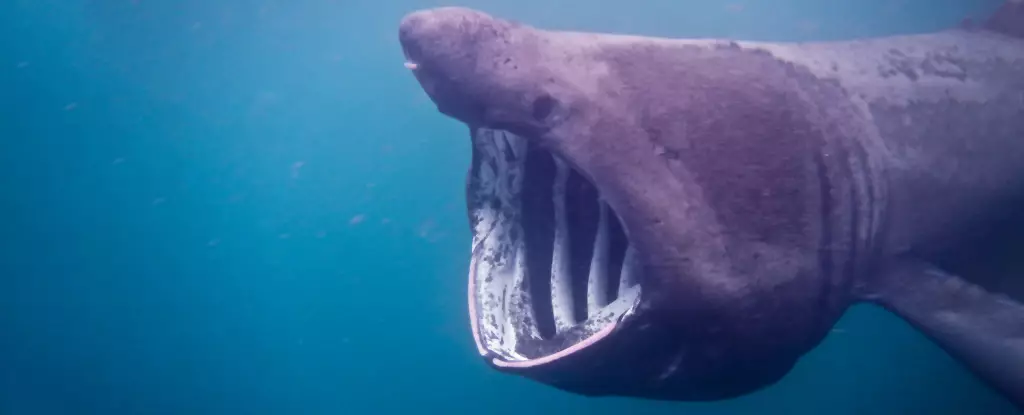In a recent event that highlights the precarious existence of marine wildlife, a basking shark, which had just been caught and tagged by a research team, encountered a catastrophic fate mere hours later. Situated in waters identified for a proposed Irish marine park, this unfortunate creature was violently struck by a vessel, underscoring the immediate dangers marine animals face even in designated conservation areas. The incident is particularly significant as it marks the first recorded instance of direct observation of a ship collision with a marine megafauna, according to marine biologist Taylor Chapple from Oregon State University.
The implications of such occurrences extend beyond the visible injuries suffered by the sharks; they raise grave concerns about the long-term survival of species already classified as endangered. The impact of this unfortunate event illuminates the critical need for increased awareness and more effective regulations around boat activity in vital marine habitats.
Basking sharks (Cetorhinus maximus) represent one of the largest fish species globally, known for their filter-feeding behavior. They spend ample time near the ocean’s surface, sifting through plankton and making them vulnerable to vessel strikes. This behavior aligns them with their relatives, such as the whale shark and baleen whales, who share similar feeding patterns. The incident with the tagged basking shark shines a light on how human activity interacts destructively with these gentle giants.
The evidence collected from the tag reveals a significant behavioral shift following the collision. After being struck, the shark fled to the depths of the ocean, abandoning its previous feeding behavior and demonstrating a stark contrast to its earlier activity. The shark, measuring approximately 7 meters in length, did not resume feeding during the remaining 7.5 hours of footage, indicating that the aftermath of such encounters can lead to crucial behavioral disruptions that may impact its health and survival prospects.
The stark reality is that basking sharks are already categorized as endangered due to historical overfishing and deliberate culling. Ireland’s coastal waters serve as one of the few remaining sanctuaries for these creatures, where they gather seasonally to feed and possibly mate. Fortunately, the announcement of a National Marine Park across 70,000 acres of these waters represents a critical step towards offering some level of safety for these animals.
However, as Chapple and his team have emphasized, merely establishing protected areas is not sufficient. They call for a broader strategy that includes the establishment of more marine protected zones across the basking shark’s range, allowing these creatures safe habitats for feeding and reproductive activities. The challenge lies in balancing human activity with necessary conservation efforts, which requires comprehensive educational programs aimed at boat operators and increased measures to prevent incidental strikes.
What many might not realize is that the impacts of ship strikes extend beyond the immediate physical injuries. Behavioral changes, stress responses, and long-term injuries may go unnoticed, leading to an underestimation of the frequency and severity of such incidents. It’s vital to understand that the absence of visible damage does not equate to the absence of impact. The researchers’ findings suggest that the potential for non-fatal but detrimental outcomes is likely far more common than previously recognized.
With the shark’s skin likely healing without any visible scars, data based solely on visible damage could lead to significant underreporting of the frequency of boat strikes. This calls for urgent attention from both the research community and marine policymakers who need to work together to develop strategies that incorporate more comprehensive data collection and evaluation methods.
As society continues to encroach upon natural habitats, the plight of the basking shark exemplifies a broader narrative of vulnerability faced by marine species. This incident serves as a stark reminder of the fragile balance between marine life and human activity. If we are to ensure the survival of these majestic creatures, immediate actions must be taken to enhance protective measures and educate stakeholders about responsible boating practices. The time for complacency is long gone; the threats facing basking sharks demand our immediate attention and proactive conservation efforts.


Leave a Reply